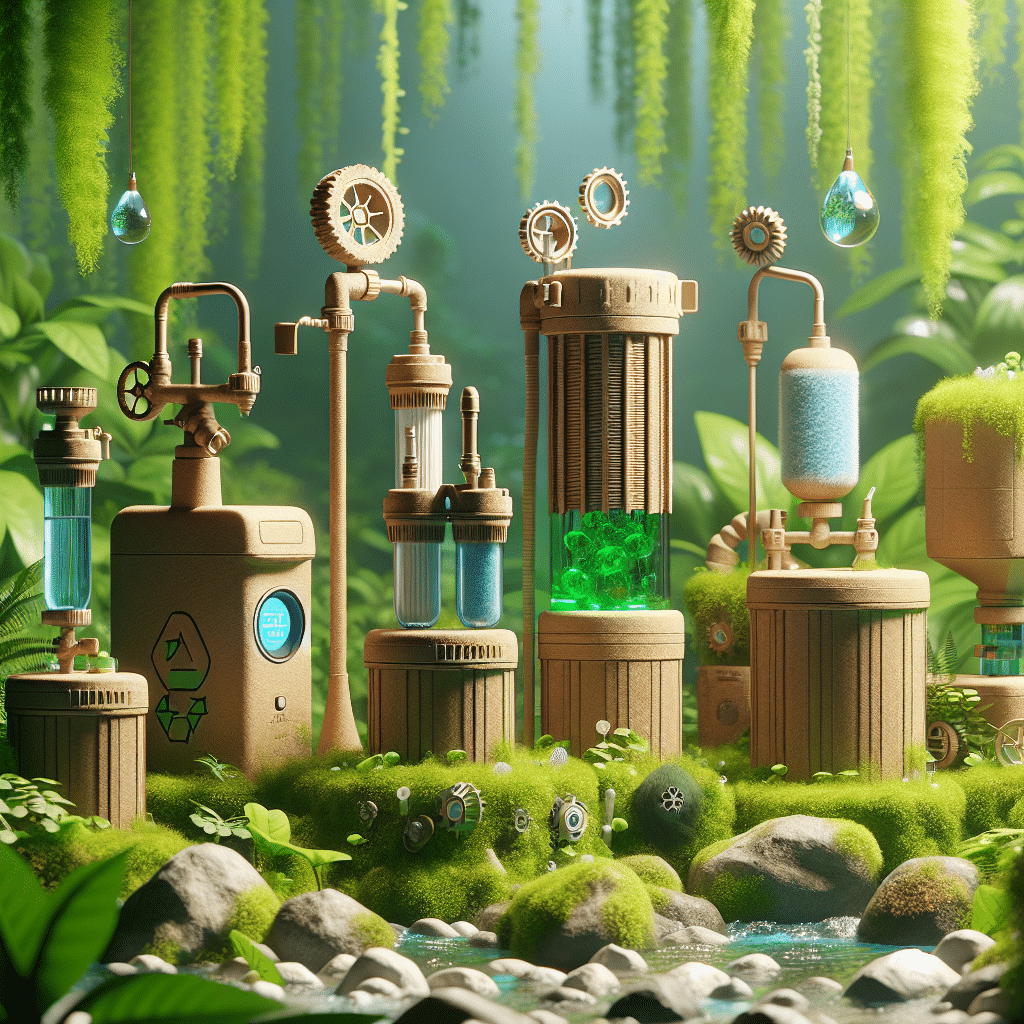The Importance of Eco-Friendly Water Filtration Devices
Water filtration is a crucial process for ensuring safe drinking water, and eco-friendly water filtration devices are becoming essential in a world increasingly concerned about environmental sustainability. These devices help reduce plastic waste while providing clean water, making them efficient and environmentally responsible choices for households.
Types of Eco-Friendly Water Filtration Devices
1. Activated Carbon Filters
Activated carbon filters utilize carbon granules to adsorb impurities and contaminants. These filters effectively remove chlorine, volatile organic compounds (VOCs), and sediment, greatly enhancing the taste and odor of water. Their eco-friendliness is evident in their longevity; many activated carbon filters can filter hundreds of gallons of water before needing replacement.
- Key Benefits:
- Reduces chemical contaminants
- Improves taste and odor
- Long-lasting and recyclable
2. Ceramic Filters
Ceramic water filters are made from natural clay, which makes them an eco-friendly option. They are highly effective in removing bacteria, protozoa, and sediment from water. Ceramic filters are often designed with a silver coating to enhance their antimicrobial properties.
- Key Benefits:
- Non-toxic and eco-friendly materials
- Capable of filtering out pathogens
- Long lifespan with proper maintenance
3. Reverse Osmosis Systems
While traditional reverse osmosis (RO) systems can be resource-intensive, newer models focus on eco-friendliness. These systems push water through a semipermeable membrane, removing a wide range of contaminants including salts, chemicals, and heavy metals. Many advanced RO systems now include water-conservation features that minimize waste.
- Key Benefits:
- Comprehensive removal of contaminants
- Advanced models with reduced water waste
- Ability to remove hard minerals that cause scale
Features to Search for in Eco-Friendly Water Filtration Devices
1. Minimal Water Waste
Eco-friendly filtration devices should be designed to conserve water. Look for systems that have a low wastewater ratio, meaning they use less water during the filtration process. Some devices have built-in features that minimize wastage, ensuring that more of the filtered water is usable.
2. Sustainable Materials
The construction of the water filtration device is paramount. Choose products made from sustainable, non-toxic materials, such as food-grade stainless steel or BPA-free plastics. This ensures that the entire lifecycle of the device, from production to disposal, is as eco-friendly as possible.
3. Replaceable or Refillable Filters
Instead of single-use filters, opt for designs with replaceable or refillable filter cartridges. This will significantly reduce plastic waste and promote sustainability. Some manufacturers even offer compostable filters or those made from recycled materials.
4. Energy Efficiency
Consider the energy consumption of the filtration system, especially for electrically-powered devices. Energy-efficient models not only help reduce your carbon footprint but also contribute to lower electricity bills.
Benefits of Using Eco-Friendly Water Filtration Devices
1. Health Advantages
Eco-friendly water filters provide essential health benefits. Non-toxic filtering materials ensure that no harmful chemicals leach into the water. Many filters also effectively eliminate harmful pathogens, providing safer drinking water.
2. Environmental Impact
Switching to eco-friendly devices plays a significant role in reducing plastic waste. For example, using a water filtration pitcher eliminates the need for bottled water, which contributes to global plastic pollution. Moreover, sustainable manufacturing processes used by responsible brands help in reducing carbon emissions.
3. Cost-Effective Solutions
Investing in an eco-friendly water filtration system may have a higher upfront cost, but it saves money in the long run. Homeowners can avoid the recurring expense of purchasing bottled water, and the prolonged lifespan of many eco-friendly filtration devices means fewer replacements.
Maintenance Tips for Eco-Friendly Water Filtration Devices
Operational longevity and efficiency require proper maintenance. Regular cleaning and timely filter replacements are essential to keep the systems functioning well.
1. Routine Cleaning
Most filters require periodic cleaning to remove build-up and ensure optimum performance. Check the manufacturer’s guidelines for recommended cleaning schedules and methods.
2. Filter Replacement
Adhere to the manufacturer’s recommendations for filter replacement. Using old filters can lead to diminished performance and potential contamination of drinking water. Monitor the filter’s performance and change it accordingly.
3. Check for Leaks
Regularly inspect your water filtration system for leaks or signs of wear. Promptly addressing any issues can help prevent more significant problems, prolonging the lifespan of your device and ensuring safe water quality.
Evaluating the Best Eco-Friendly Brands
When choosing an eco-friendly water filtration device, evaluating brands and their ethos is vital. Look for companies with transparent sourcing processes and a commitment to sustainability.
1. Certifications and Standards
Select brands that comply with industry standards and have certifications from trusted organizations, such as NSF International or the Water Quality Association. These certifications reflect the product’s reliability and performance.
2. Customer Reviews and Satisfaction
Research customer reviews and testimonials to evaluate the efficacy and reliability of various products. Insights from other users can provide a holistic view of the filtration system’s performance and durability.
Future Trends in Eco-Friendly Water Filtration
Innovation in water filtration technology is paving the way for more efficient and sustainable solutions. The rise of smart filtration systems that monitor water quality and filter-life is one exciting trend. Additionally, the integration of intelligent, AI-driven technologies offers real-time data on water contaminants, ensuring optimal health and safety.
Conclusion
Adopting eco-friendly water filtration devices is not only an advantageous choice for personal health but is also vital for the protection and preservation of our planet. By selecting an appropriate product, performing regular maintenance, and staying informed about new trends, consumers can make a positive impact while enjoying the benefits of clean, safe drinking water.
